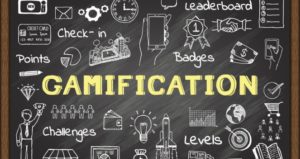
Aspiring to Create Learning Experiences Students Remember
Some of us can easily recall a specific class from years ago that left an indelible impression. Then, there are entire courses we barely remember.


Some of us can easily recall a specific class from years ago that left an indelible impression. Then, there are entire courses we barely remember.

Decades ago, a new employee was hired to paint stripes on the side and middle of a road. This was before automated machines, and thus

What began as a routine summer workshop on incorporating games and game-like elements into instruction, turned into a surprise for summer; two weeks of fun

Most would agree the classroom is a place for discourse, reflection, and learning. But, whose class is it? Who’s doing the learning—the teacher or the

To: My Students
From: Your Teacher
Re: A Better Learning Experience
This is just a brief note to let you know how committed I am to making this a good course. But I can’t do my best teaching without your help. So, I thought I’d share a list of things you can do that will make this a better experience for all of us.
A line of research (done mostly in Australia and Great Britain) has been exploring what prompts students to opt for deep or surface approaches to learning. So far this research has established strong links between the approaches taken to teaching and those taken to learning. If teachers are focused on covering large amounts of content and do so with few attempts to involve and engage students, students tend to learn the material by memorizing it, often without much understanding of it. This new work involved a 388-student cohort enrolled in a first-year biology course and explored the relationship between the ways students emotionally experience a course and the approach that they take to learning in the course.
Do you ever wonder whether your students care about your course material? Do you question whether your students appreciate how the information you address in class is relevant to them? Do you feel like there is often a mismatch between your intentions for your class and what your students actually want to learn?
How do we make learning messy and unpredictable for our students—and why? I posed this question to the members of the Teaching Professor group on LinkedIn in July, and a lively and insightful discussion immediately began. This article is based upon the insights shared in the discussion.
You were hired because of your deep subject matter expertise; knowledge you want to share with your students. The problem is, the number of hours in a typical semester hasn’t changed, but the amount of information in your discipline continues to grow…and it’s all critical. Or is it?
In every course there are certain core concepts and principles that are important for each student to learn, develop into useful knowledge, and apply appropriately. What’s not important is how they learn these core concepts.
Get exclusive access to programs, reports, podcast episodes, articles, and more!